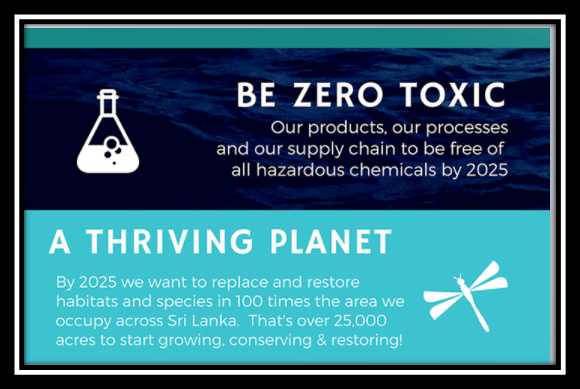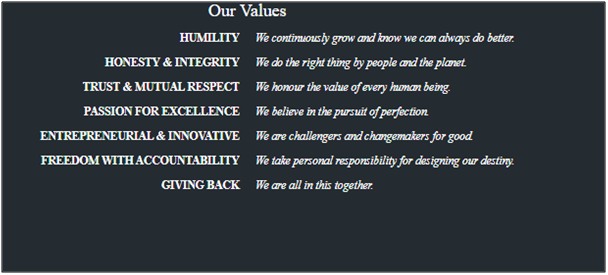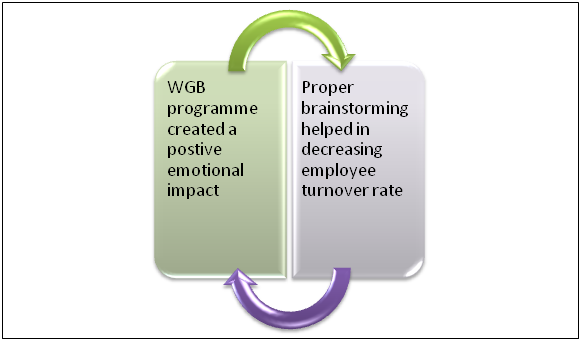Management Assignment: Leadership & Organisational Transformation OfMahesh Amalean- Chairman Of MAS Holdings
Question
Task: As an individual, you will submit a two-part report comprising of (i) a critical review of academic material (1000 words) and (ii) a critical appraisal, evaluation and justification of change within a specific international organisation (2000 words).
Management Assignment Task(s)
Part 1: Critical Review of academic material (1000 words)
The first part of the module focuses on strategic leadership and management by examining the evolving nature of leadership and how transformational leaders lead their organisations. This part of the module explores leadership needs and the appropriate leadership style among other things. There will also be focus on leadership qualities and styles which will encourage students to reflect on their own development as leaders on the international stage. A number of models, theories and perspectives of leadership are explored including leadership style and the relationship with situational factors; Critical components of strategic leadership; Leadership development styles, motivations and competencies. You should identify and use a specific strategic leader within an international organisation as your focus.
Part 2: Critical appraisal, evaluation and justification of change within an international organisation (2000 words)
The second part of the module aims to help students develop an understanding of the concept of organisational transformation and change and to be able to reflect critically on current debates about the extent to which organisations may be manipulated or transformed. You should use the same organisation you have identified in Part 1. You will study a range of tools, models and theoretical concepts concerned with the process of managing change and learn to apply this learning in a case study context. This part of the module also aims to develop your appreciation of the human dimension of change initiatives and the strategic role of leaders, paying particular attention to the emotional impact of organisational change and enable student to consider change leadership behaviours at an international level using appropriate conceptual and practical tools. The nature of change management and the impact of organisational dynamics, power and culture on the strategic change programme are also explored.
Answer
Part 1: Critical Review of academic material
Overview of Strategic leadership and management
Strategic leadership refers to a leader’s potential towards expressing any strategic form of vision for the organisational aspect while motivating and persuading internal and external stakeholders of the organisation for acquiring the vision. It implies potential utilisation of strategic approach in terms of managing employees effectively. It is the potential towards influencing different form of organisational members towards executing change within organisational standards. It provides higher leadership development and engages on delivering motivation to employees for achieving best standards of work.
It is essential to note that there is a strong relationship between leadership and management. It offers proper guidance to workers and helps in getting them in right sense or direction. In this context, as a critical component of management, remarkable form of leadership behaviour further stresses upon establishing an environment, in which employees within an organisation develops and potentially excels (Ali and Anwar, 2021). Therefore, leadership comprises of an essential form of part in the management aspects.
Transformational leaders leading their organisations
A transformational leader implements the transformational leadership-style that involves inspiring optimal form of changes among individuals within the organisation along with the social systems. The transformational leader, identified in this context is “Mahesh Amalean”, the chairperson of MAS Holding, who has been responsible for enhancing motivation, morale as well as performance of the organisational stakeholders through different mechanisms.
Amalean has been significant in terms of implementing “Intellectual Stimulation”, within the organisational standards, which have further encouraged potential amount of creativity among the employees and other internal stakeholders of the organisation. With Amalean’s “individualised consideration”, he has offered proper support as well as encouragement to different stakeholders and kept strategic communication line open within different departments of the organisation. With Amalean’s direction of change, MAS holdings has become the leader in apparel sector of Sri Lanka and caters big universally renowned brands such as “Victoria’s Secret” (Masholdings.com, 2021). Amalean’s right sense of direction along with “idealised influence”, have enabled MAS-Holdings to grow and get competitive edge in the market while achieving extraordinary outcomes in the apparel sector. Leadership Styledevelopmentmotivation and competencies According to “Hersey-Blanchard Situational Leadership Theory”, there are different leadership styles, which will be discussed in this section.
Authoritarian Leadership
In this style of leadership, autocratic leaders provide clear expectations and set standards of work that needs to be completed. It focuses on strong command by leader and decisions are further made independently without involving the followers into the decision-making processes (Cortes and Herrmann, 2021). This does not offer proper motivation to employees but engages on building core competencies of the organisational standards.
Participative Leadership
This leadership style as per “Lewin’s Study”, provides potential guidance to their followers or team members and allow proper input from group members within organisational standards (Kurzhalset al. 2020). In this style of leadership, team members feel empowered, engaged and motivated in process and leaders tend to provide proper guidance and a sense of vision for achieving target standards.
Transactional Leadership
This leadership style involves an employer-employee association and transaction further focuses on follower completing proper tasks in exchange of a reward in the organisational standards. It set clear roles but it stifles potential creativity of employees (Cortes and Herrmann, 2021).
Transformational Leadership
This is one of the most effective style in which leaders, motivate as well as inspire their followers for directing optimal changes in groups and within organisational environment. These leaders tend to be emotionally intelligent and passionate and offer potential guidance to their followers for reaching commitments (Keeton, 2018). It leads to higher performance and improved form of team satisfaction compared to other leadership styles. It provides higher leadership development and engages on delivering motivation to employees for achieving best standards of work.
Leadership needs for international change
Strategic leadership is needed for understanding, analysing as well as potentially formulating along with incorporating most suitable form of change within the organisational standards. Wide skill-set comprising of potential talent as well as competencies are further needed from a potential leader for bringing a successful form of organisational change.
In this aspect, Mahesh Amalean is the present chairperson of “MAS Holdings”, which is headquartered in Srilanka. In this context, it is worthy to note that Amalean is recognised among five global leaders in business, that have been presented UN Award during the “WEP’s Inaugural Leadership Awards”. In this context, leadership requires a proper vision along with an innovative form of approach for enhancing international organisational change. In this context, strategic leadership is eagerly required by organisations such as MAS Holdings that is well capable in terms of predicting essential form of alterations as well as changes, with potential advancing of required commitments. The actions through leaders are further decisive not only for potential effectiveness associated with the organisation but also for its utmost survival within international standards.
Critical components of strategic leadership
Amalean comprises of proper components associated with enhancing strategic leadership in the international marketing environment. Firstly, he comprises of potential intellectual stimulation that encourages proper creativity among the organisational members and explores proper way of bringing change into the organisational environment. Secondly, Amalean sets a clear vision, which is another critical component, associated with strategic form of leadership aspects (Abu Mostafaet al. 2021).
The potential idealised form of influence enables him to be treated with respect and emulate as well as internalise their ideals. In this context, it is noteworthy that Amalean assures proper distribution of responsibility while being honest as well as transparent as a leader (Masholdings.com, 2021). As a leader of MAS-Holdings, he has been able to provide right people, procedures as well as policies that develop new opportunities for learning while assuring strategic form of decision-making within the organisational environment. Through recognising potential leadership development as an on-going form of practice, Amalean have created proper scopes for assuring productivity and boost performance within the apparel sector, which is another critical component of enhancing a strategic form of leadership within present marketing standards.
Part 2: Critical appraisal, evaluation and justification of change within an international organization
Change initiative and strategic role of leaders
The MAS-Holdings is a global supplier of intimate apparels operating with above 88000 different employees. It comprises of several apparel production plants and manufacturing factories in and outside of Sri Lanka. Due to lack of communication and gender-based violence at workplace, MAS had been facing social challenges such an lack of women workers in compared to men workers and gender-based violence in the manufacturing factories and workplaces of the organisational environment. Amalean took an initiative to empower the women workers through marking a range of initiatives that will be discussed in this section. Firstly, the transformational leadership style of Amalean helped in creating a strong as well as skilled form of workforce in the organisational standards. The proper workforce management has been a major problem for the organisation that have been controlled and monitored through leveraging emerging technologies (Shao, 2019). Amalean introduced campaigns and nurtured potential associates for being equally exceptional in terms of their job responsibilities as well as proper roles in the societal aspects. Amalean enhanced the “WGB Programme”, in 2003 that marked as a proper hallmark associated with gender-based equality in the workplace (Masholdings.com, 2021).
Critical evaluation of internal and external environment and its influence on leadership
The director of the MAS-Holdings, “Deshamanya Mahesh Amalean”, is considered as a global business leader comprising of potential abilities or proper qualities towards inspiring, and motivating proper organisational change and providing inspiration to others in the business environment. In this context, certain factors comprise of an influence on the strategic leadership. This section includes evaluation of both internal as well as external form of environment and their potential impacts on the leadership attributes.
External Factors
Firstly, considering the “Regulatory or legal issues”, such a protection of business data and need for corporate-social responsibilities especially in the international marketing environment, it has been difficult for Amalean to adhere to the factors for maintaining business sustainability. In this context, his idealised influence along with proper business transparency aspects helped in terms of maintaining “Diversity at Work”. With rising social issues regarding discrimination factors, Amalean as a strategic leader have marked an aspirational goal for MAS-Holdings to be a non-discriminatory form of employer in terms of potential age as well as impairment within the marketing environment by 2025 (Masholdings.com, 2021). Therefore, both legal and social environment has marked optimal impact in the organisational change and strategic leadership of Amalean in this context. As regulatory factors demand the best form of practices in the global standard and needs adherence of ILO conventions, Amalean has been effective in terms of assuring that the organisation advocates to the best global form of practices with a potential intention of establishing a unique form of business standards (Jaleha and Machuki, 2018). The change of integrating “Health and Safety Standards”, even in a developing country factory, such as Sri Lanka, Amalean have illustrated establishment of ethos, which continuously adhered to global regulatory policies.

Figure 1: Environmental management
(Source:Masholdings.com, 2021)
Additionally, regarding the environmental or green issues, in Sri Lanka as well as rest of the countries in which MAS-Holdings operates, there have been an increasing focus of consumers to purchase sustainable items that marks minimum impact on the environment. In this context, Amalean had been efficient to understand the changing needs of the environmental factors and preferences of the consumers. Therefore, Amalean have been effective in terms of introducing the “Champion Climate Action”, of MAS, that enhances operating as a proper business while getting a scope to mark a net positive impact through the business operations. He incorporated this action programme for collaring with both private as well as public sectors for achieving low footprint of the business. It is important to note that Sri-Lanka has been vigilant regarding the environmental influences of MAS’s growing manufacturing operation (Al Khajeh, 2018). In this context, for supporting the minimal environmental footprint, Amalean introduces proper programme through which the business continuously seeks new ways of measuring impact along with reducing the major carbon-footprint of their operations. Amalean had also introduced the “Support A Thriving Planet”, operation and initiative that assures that MAS will aim to replace habitats in 100 times the space, which will be occupied by the year 2025.
Internal Factors
The organisational value of MAS facilitates the strategic leadership. In this context, it is noteworthy that MAS believes that “impossible is nothing”, and through enhancing this optimal attitude and value it marks a high commitment to the international standards. It is essential to note that coming from a developing country such as Sri Lanka, MAS have not limited its business to the country (Huertas-Valdiviaet al. 2019). It has expanded significantly to become the global leadr in apparel sector in Asia. In this concern, as a leading manufacturer associated with “intimate apparel, sportswear and swimwear”, MAS provides a value-based product and services to their consumers in global aspects (Masholdings.com, 2021).

Figure 2: Empowerment of Women as an organisational culture facilitates Transformational leadership
(Source: Masholdings.com, 2021)
Their organisational culture enhances “Women Empowerment”, and providing proper form of work-life balance to their employees. Their organisational culture facilitates the strategic decision-making through supporting potential form of career advancement within proper organisational standards. In this context, MAS organises proper programmes, towards enhancing skill-development of their male and female employees with a proper aim to mentally stimulate as well as potentially develop intrinsic skills of their employees that ranges from art to performance culinary. All of the above-mentioned factors facilitate the “Change Management”, and transformational style of leadership by Amalean.

Figure 3: Organisational values of MAS Holdings
(Source: Masholdings.com, 2021)
Their core organisational values of reducing any form of gender-based violence in the workplace leverages Amalean’s leadership for providing the workers proper training and development towards assessing safe form of workplace (Sousa and Rocha, 2019). Additionally, the women-empowerment and diversified culture of the organisation helps Amalean to gain a proper understanding regarding establishing potential strategic approaches for making the work space safe and non-discriminatory in the global context.
Nature of Change-management and impact on organisation
For reduction of “Gender based violence”, in the MAS, Amalean introduced campaigns and nurtured potential associates for being equally exceptional in terms of their job responsibilities as well as proper roles in the societal aspects. For recognition of proper need to, widely address potential gender equality in workplace, Amalean enhanced the “WGB Programme”, in 2003 that marked as a proper hallmark associated with gender-based equality in the workplace. It indirectly also impacted the families as well as communities of the worker families in an optimal manner. Amalean enhanced “Supporting Career Advancement”, to the women workers and provided potential training as well as development programmes by sharpening their technical along with soft skills in these attributes. Through assuring leveraging of technology along with skill-development sessions, MAS enhanced the establishment and stimulation of intrinsic skills of women workers.

Figure 4: Emotional impact mitigation
(Source: Researcher)
As the company provided the workers to display their proper talents along with performance, it directly caused profitability towards the organisation and increased its assets, which helped it to become more responsible and sustainable in terms of fair work in the organisational aspects. Amalean collaborated with the support of “International Labour Organisation (ILO) for Human Resource”, Production-managers along with Factory managers for provide training to their workers for creation of safe workplace. Introducing potential “Compliance Training on Sexual Harassment Policy”, helped Amalean to create a conductive form of work environment, which facilitates mutually dignified form of social-setting and raises non-violent association among colleagues as well as subordinates (Masholdings.com, 2021).
The direct impact of the change has enabled MAS Holdings to grow as one of the global leaders in the intimate apparel sector while adhering to most compliance and regulatory sectors in their countries of supplies and operations. The transformational leadership approach of Amalean have also provides numerous form of awards along with recognitions for driving the change of “Women Go Beyond Programme (WGB)”, which involves a proper “Women’s Empowerment Principles Leadership Award”, and worldwide positive brand recognition, driving their increase in workforce and gaining competitive edge in the apparel sector in global context (Masholdings.com, 2021).
Emotional impact of organisational change
For driving the change of gender-based equality and mitigation of violence in the workplace, Amalean enhanced his strategic transformational leadership role towards providing continuous form of support in terms of both financially as well as emotionally. The emotional impact of this change has been significantly positive (Rahbiet al. 2017). This is because most women workers that have been facing violence in workplaces and avoided leadership roles, were eager towards marking adoption of the change programme (WGB programme) while supporting the strategic thinking process of Amaleas in the MAS working environment.
The workers apart from the female workers have been guided through proper training and development of ILO standards and knowledge-sharing abilities for mapping the change inton standard form of procedures. Initially, many workers thought that they will be deprived of rights due to not being women workers, but gradually with effective thinking and proper communication, Amalean assured that no-discrimination will be done in the workplace. The aim was to integrate a 1:1 ratio of gender-based workforce. MAS enhanced transparent form of communication channels with their internal stakeholders and kept their workers well informed regarding the policy changes and organisational progress that enhanced a positive emotional impact and people started supporting the growth and change of the organisation. Therefore, with proper motivation and guidance, Amalean invoked operational changes effectively into the wide environment of the company and his efforts have been widely appreciated as well as commended through primary stakeholders in a global aspect.
Leadership strategies organisation using for dealing with resistance to change
Amalean enhanced transformational leadership style towards integrating the change into the organisation. For empowering women workers while assuring no-gender based violence in the workplace, MAS has been working to create collaborative form of groups. These groups are responsible for analysing challenges such as managing upsetting employees and brainstorming them for understanding importance of the change in the organisation. In this context, it tends to flatter hierarchal form of structures and make an agile approach for providing maximum form of flexibility associated with continuously changing environment. Any form of resistance towards the change such as employees not supporting change and increased turnover due to confusion, is managed through this effective teams. It helps in illustrating a proactive strategic approach for reducing the resistance through proper brainstorming sessions and further eliminating the same for successfully driving the change.
For motivating employees more towards accepting the change while mitigating “low tolerance for change”, and lack of trust, proper communication is enhanced in the MAS holdings that assures every employee in the organisation is communicated by the immediate managerial supervisor for enhancing the reason for change in the organisation. It helps Amalean to gain trust of his employees and assures better employee loyalty and retention attributes in the organisational aspects.
Recommendations
Apart from utilising the “Transformational Leadership Style”, proper incorporation of “Participative Leadership Style”, can help MAS Holdings to reduce the lack of trust among employees, which has been resisting to the change management in this context. The “Participative Theory of Leadership”, will enhance taking account of employee creativity and input into organisational decision-making attributes (Akpoviroroet al. 2018). It will help in creating high morale among the teams and enhance the creativity of the groups. Finally, it will also help to increase collaboration in the workplace while reducing conflicts, therefore enabling problem-solving approach to improve team morale and encourage the change process.
Additionally, “Lewins Change Management Model”, can be properly incorporated in the MAS Holdings, by Amalean, that will involve three stages of change in the organisational standards (Hussain et al. 2018). During the first stage of “Unfreeze”, vision and organisational strategy works as supporting evidence and proper communication of vision is enhanced for supporting the change. It involves remaining open towards staff concerns while address them for needing to change. Second step will involve “Change Process”, that will assure open communication to employees for enhancing thorough and comprehensive planning and incorporation of the changes. Final stage will involve “Refreeze Process”, in which through proper training and development and brainstorming techniques, employees will embrace the new change within the organisation and will boost the organisational productivity (Hussain et al. 2018). Therefore, this model of change-management can be effective with transformational leadership of Amalean for providing employees a potential sense of stability while making employees comfortable and stabilising the change in the organisational environment.
Reference List
Abu Mostafa, Y., Salama, A.A., Abu Amuna, Y.M. and Aqel, A., 2021. The Role of Strategic Leadership in Activating Time Management Strategies to Enhance Administrative Creativity Skills. International Journal of Academic Management Science Research (IJAMSR) Vol, 5, pp.36-48.
Akpoviroro, K.S., Kadiri, B. and Owotutu, S.O., 2018. Effect of participative leadership style on employee’s productivity. International Journal of Economic Behavior (IJEB), 8(1), pp.47-60. Al Khajeh, E.H., 2018. Impact of leadership styles on organizational performance. Journal of Human Resources Management Research, 2018, pp.1-10.
Ali, B.J. and Anwar, G., 2021. Strategic leadership effectiveness and its influence on organizational effectiveness. International Journal of Electrical, Electronics and Computers, 6(2).
Cortes, A.F. and Herrmann, P., 2021. Strategic Leadership of Innovation: A Framework for Future Research. International Journal of Management Reviews, 23(2), pp.224-243.
Huertas-Valdivia, I., Gallego-Burín, A.R. and Lloréns-Montes, F.J., 2019. Effects of different leadership styles on hospitality workers. Tourism management, 71, pp.402-420.
Hussain, S.T., Lei, S., Akram, T., Haider, M.J., Hussain, S.H. and Ali, M., 2018. Kurt Lewin's change model: A critical review of the role of leadership and employee involvement in organizational change. Management assignment Journal of Innovation & Knowledge, 3(3), pp.123-127.
Jaleha, A.A. and Machuki, V.N., 2018. Strategic leadership and organizational performance: A critical review of literature. European Scientific Journal, 14(35), pp.124-149.
Keeton, W., 2018. Command, leadership, intelligence and management (CLIM): A proposed theory for improved strategic leadership. FIIB Business Review, 7(2), pp.146-151.
Kurzhals, C., Graf Vlachy, L. and König, A., 2020. Strategic leadership and technological innovation: A comprehensive review and research agenda. Corporate Governance: An International Review, 28(6), pp.437-464.
Masholdings.com, 2021, About Us, Viewed on 06/11/2021 from https://www.masholdings.com/our-people.html
Masholdings.com, 2021, Sustainability Report, Viewed on 06/11/2021 from https://www.masholdings.com/sustainability-environmental.html#sustainability-environmental-overview
Rahbi, D.A., Khalid, K. and Khan, M., 2017. The effects of leadership styles on team motivation. Academy of Strategic Management Journal, 16(3).
Shao, Z., 2019. Interaction effect of strategic leadership behaviors and organizational culture on IS-Business strategic alignment and Enterprise Systems assimilation. International Journal of Information Management, 44, pp.96-108.
Sousa, M.J. and Rocha, Á., 2019. Leadership styles and skills developed through game-based learning. Journal of Business Research, 94, pp.360-366.












